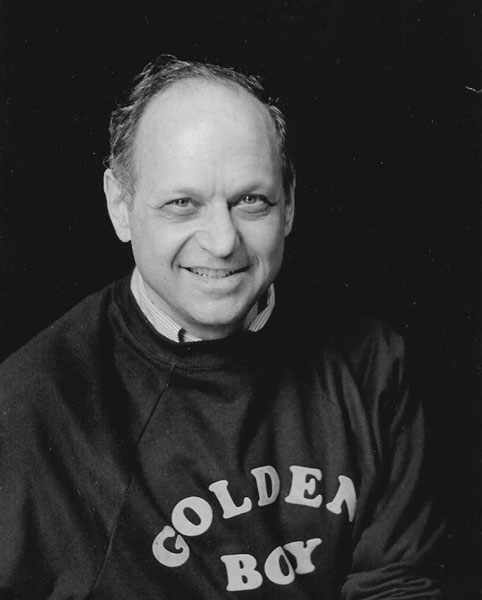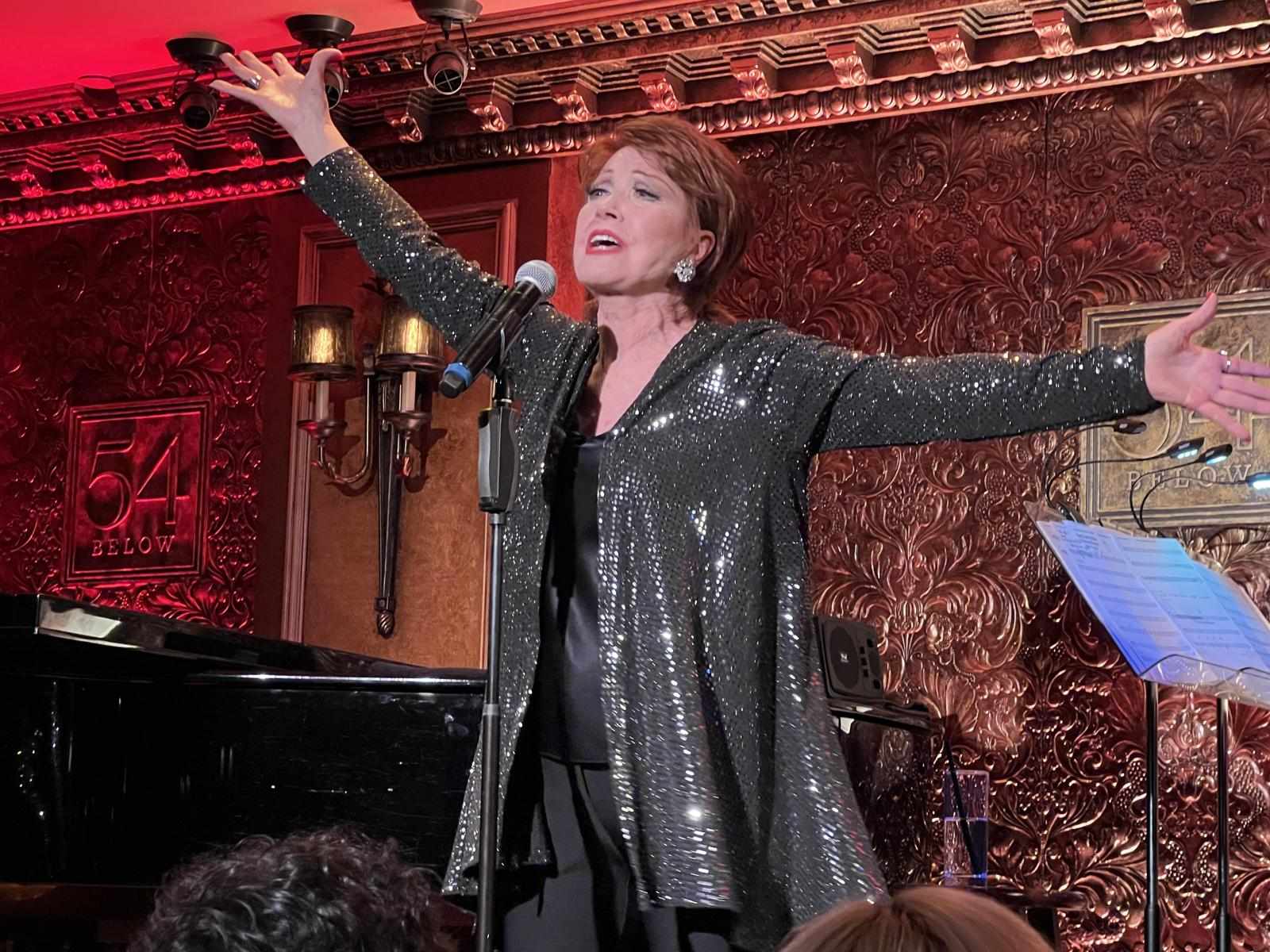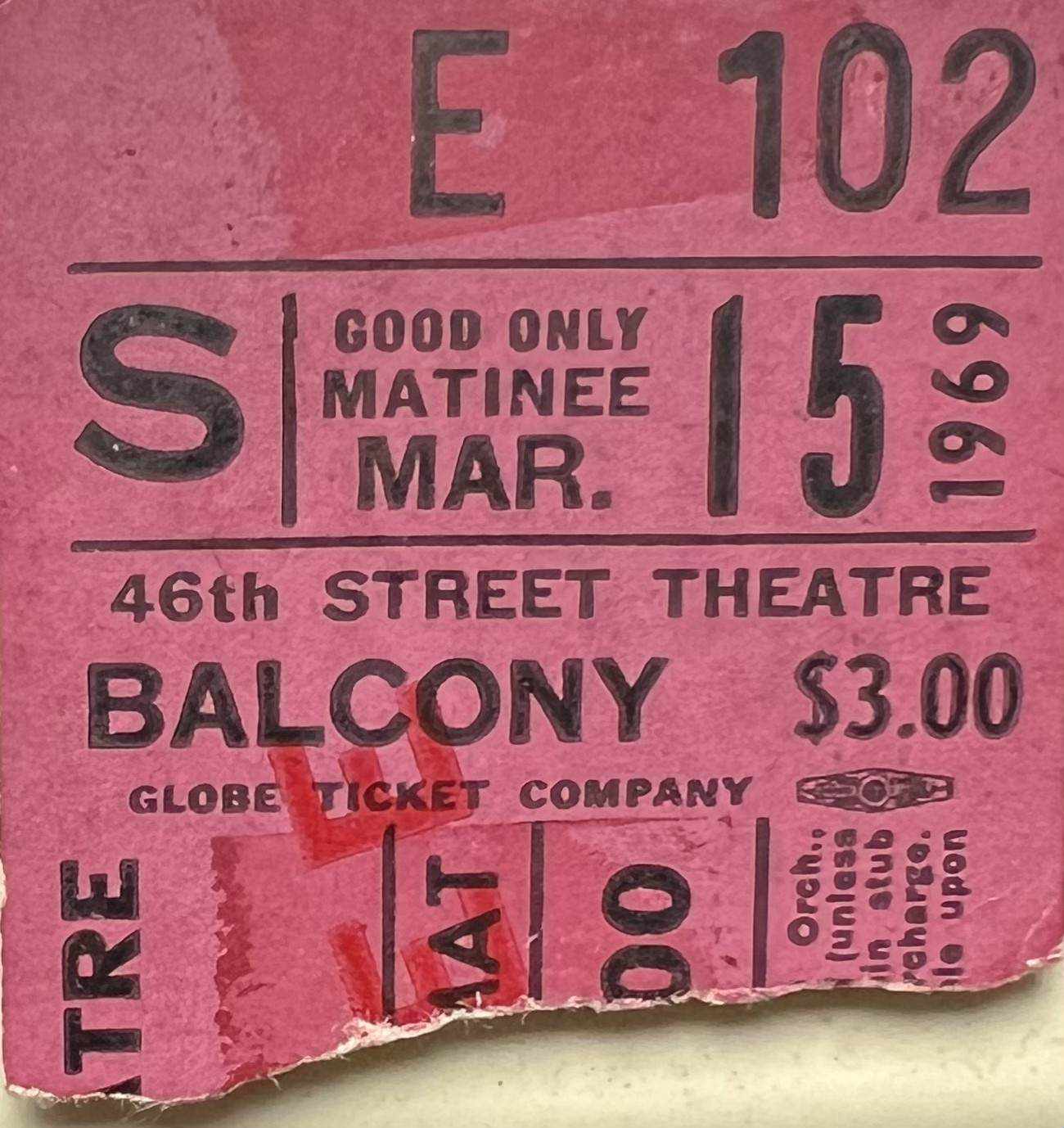
The original Broadway production of Bye Bye Birdie is sixty-one today. Brash and youthful, it's hard to imagine what its impact was back in 1960; the first musical to incorporate elements of rock and roll into a traditional Broadway score. In lieu of a time machine, here's a look back at how it even got to Broadway in this edition of "Theatre Yesterday and Today."
Producer Edward Padula was worried. He liked the show he was working hard to raise money for, but he was taking a big risk on whether Broadway audiences would cough up the top ticket price of $8.60 to see it. The head of a team of novices all new to the theatre, Padula himself had never tried on a producer’s hat before, though he had a number of shows to his credit as stage manager and was the oddly credited "Book Director" for an early Alan Jay Lerner/Frederick Loewe collaboration, the short-lived The Day Before Spring in 1945. The librettist was Michael Stewart, who had recently been part of the now legendary writers’ room in the mid-1950s on Caesar’s Hour (Sid, that is), perfecting the art of comedy sketch writing alongside the likes of Larry Gelbart, Mel Brooks, Carl Reiner and Neil Simon. And though he had two short-lived Broadway revues to which he contributed, Birdie would be his first shot at writing a full book, the art of which he would go on to sharpen with such long running hits as Carnival, Hello, Dolly!, I Love My Wife and 42nd Street. The score was composed by Charles Strouse and Lee Adams, then making their Broadway debut as a team. They would be responsible for future top notch scores to All American, Golden Boy, It’s a Bird, It’s a Plane, It’s Superman and Applause, with Strouse's greatest triumph, Annie, in tandem with Martin Charnin as lyricist. And Birdie's director/choreographer was Gower Champion, who though renowned as a famous dancer on stage and screen, had recently turned to directing and choreographing a number of revues. Bye Bye Birdie would mark his first staging of a book musical, the beginning of a remarkable run of hits and Tony Awards.

Little could this team have realized that only a few days past the one-year anniversary of Birdie’s opening night, they would win the lion's share of Tony Awards handed out on April 16, 1961 at the Waldorf Astoria Ballroom. In addition, Gower Champion took home two; one for his direction and one for his choreography. Famously, Chita Rivera did not win for Featured Actress (ridiculously stuck in that category due to her billing below the title, as was her co-star Dick Van Dyke, who won as Featured Actor. Ridiculous). I say, "famously,” as it wasn't until Rivera's fourth nomination (twenty-three years later) that she finally got her first Tony. That trophy for The Rink gained a mate nine years later when she won another for the title role in Kiss of the Spider Woman. In the course of her still-going seventy-year career (!), she has been Tony nominated more than any other actor or actress: ten times.
When it premiered in 1960, Elvis Presley had been a superstar for about four years. Basing Birdie's plot on when he was drafted into military service in 1958, the creatives took a real life incident and gave it a full-blown, fictional counterpart in Conrad Birdie. Audiences' familiarity with Elvis made it easy to imagine how he would impact a small town like the imaginary Sweet Apple, Ohio — a rock star suddenly thrust into hum-drum middle-American lives. It made perfect sense that grown women might faint and that teenagers would turn against their parents’ admonitions of such a corruptible influence on their virginal youth. The authors took full advantage of this ripe satirical setting and ran with it. In spite of Brooks Atkinson in the New York Times (he didn't get it), most reviews echoed what John Chapman wrote in the Daily News: “The funniest, most captivating, and most expert musical comedy one could hope to see in several seasons of showgoing.” Side note: Shortly after Birdie opened, Atkinson retired as the Times chief theatre critic after a thirty-five year run (his closing line of his review was "Bye Bye Birdie is neither fish nor fowl nor good musical comedy. It needs work"). Perhaps all the other raves gave him reason to think his time had come and gone.

According to Charles Strouse in his 2008 memoir, Put On a Happy Face, “The show Ed Padula told me about was then called Let’s Go Steady, and it was indeed about teenagers. Ed wanted it to be a ‘happy teenage musical with a difference’ — the difference being our teenagers would be nothing like the ones portrayed in 1957’s West Side Story. Ed had contracted two book writers named Warren Miller and Raphael Millian, and Lee and I quickly wrote seven songs (three of which would survive to see the stage) to fit their libretto.”
In order to grab Gower Champion (who liked the music but not the book), Padula fired Miler and Millian and brought in a succession of people to work on it (briefly among them Mike Nichols and Elaine May). Strouse and Adams knew Stewart from their days working at summer resorts like Green Mansions in the Catskills (back when that was a thing) and were responsible for finally convincing Padula to hire him. And it was Stewart who came up with adding the Conrad Birdie element to the show, which interested Champion, but didn't hook him entirely. To sweeten the pot, Padula pitched that perhaps Champion could also play the lead opposite his then wife-Marge Champion.
The whole process remained a tough sell to investors even after the sensible hiring of Dick Van Dyke and Chita Rivera (although the leading contender had been Eydie Gormé, who would have gotten the role had she not gotten pregnant). Money was so difficult that on the opening night in Philadelphia, Strouse reports in his book that the major worry was of a “very empty lobby overseen by bored box office personnel with deep stacks of unsold tickets behind them.” Unbeknownst to Strouse at the time, was the fact that just before the curtain rose, Padula found himself $75,000 in the hole for the posting of a bond that no show can open without. He desperately called anyone who could help and it was his great fortune that Goddard Lieberson, the esteemed producer of Original Cast Recordings at Columbia Records, picked up the phone. He stepped in with the full amount in exchange for the rights to produce the recording (a good thing for both men). Happily, once the Philly critics weighed in, the next morning, according to Strouse, had “lines of people curling throughout the lobby and into the street.” From that moment on, Birdie was a hit and most of the credit over the years has rightfully gone to Gower Champion, who worked the creative team like a dog musher, whipping the musical into shape until he got what he wanted. And from the creativity of his staging of "The Telephone Hour," to the finale, which forwent the traditional big finish choosing instead to have Van Dyke wheel Rivera about the stage on a luggage cart and sing the delightfully low-key "Rosie" (my favorite song in the score).

In addition to Van Dyke and Rivera, the show boasted a stellar cast. Kay Medford, who would go on four years later to portray another memorable mother — Mrs. Brice in Funny Girl — played Mae Peterson, one of the most excruciating and overbearing mothers ever to be found in a play or musical. Unfortunately, due to the character not having any songs, the original cast recording provides no evidence of what Medford did in the show. Paul Lynde, first discovered in the Broadway revue New Faces of 1952, had his breakout role as Harry MacAfee, frustrated father to teenage Kim. The role was beefed up continually throughout the rehearsal process, due to his uncanny ability to get a laugh on nearly anything he did. In fact, in the great song “Hymn For a Sunday Evening,” a heavenly tribute to Ed Sullivan, his “Ed, I love you!” was an ad lib that the creative team kept in the moment he came up with it during a run-through.

Dick Gautier was Conrad Birdie, and received a Tony nomination (losing to Dick Van Dyke). Gautier later achieved a certain level of fame as Hymie the Robot on Get Smart, the hit late 1960s TV comedy. Kim MacAfee was played by Susan Watson, who was a go-to ingenue through the 1960s and early ’70s, with credits that included Carnival, Ben Franklin in Paris, Celebration and No, No Nanette.

Michael J. Pollard, a future Academy Award nominee for Bonnie and Clyde was her boyfriend, Hugo and, as a member of the chorus (and understudy to Dick Van Dyke), was Charles Nelson Reilly, who only one year later, would win a Tony Award as Bud Frump in How To Succeed in Business Without Really Trying and four years later, create the role of Cornelius Hackl in Hello, Dolly!

And lest you think Let's Go Steady was quickly renamed Bye Bye Birdie, it wasn't. Many other titles were bandied about including Going Steady, Love and Kisses, The Day They Took Birdie Away and even Goodbye Birdie Goodbye before landing on the right one. But then again, Michael Stewart had a knack for working on shows that didn't get their titles right at the start: Dolly, A Damned Exasperating Woman — without even an exclamation point to top it off — was far better served as Hello, Dolly!
If you enjoy these columns, check out Up in the Cheap Seats: A Historical Memoir of Broadway, available at Amazon.com in hardcover, softcover and e-book. And please feel free to email me with comments or questions at Ron@ronfassler.org.






















Write a comment ...